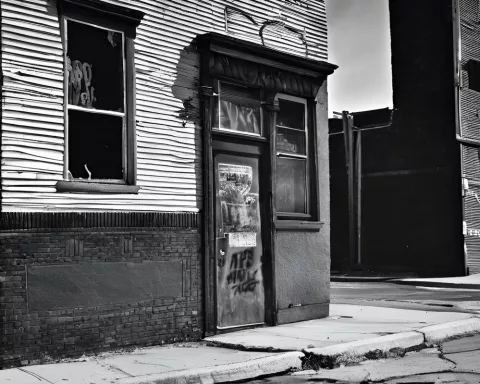Cape Town is making strides towards providing affordable housing options for its residents through various initiatives, including the release of more than 2,000 social housing units across seven land parcels. However, financial challenges and funding cuts for local governments have resulted in a need for increased subsidies and a plea for the national government to reevaluate its funding priorities. The city’s administration is committed to investing in infrastructure, particularly in water and sanitation sectors, but urges the national government to allocate funds more strategically to enhance the lives of the poor.
What are Cape Town’s urban development and housing initiatives?
Cape Town is aiming to provide affordable housing options for its residents and has finalized the land release of the Pickwick Road site in Salt River for social housing development. The city has achieved several milestones over the past year, including the release of more than 2,000 social housing units across seven land parcels. However, financial challenges and funding cuts for local governments, including Cape Town, have resulted in a need for increased subsidies and a plea for the national government to reevaluate its funding priorities.
Cape Town’s Urban Development and Housing Initiatives
Cape Town exemplifies unity and progress in an increasingly conflict-ridden world, with its diverse population coexisting harmoniously. The South African metropolis has experienced a population increase of nearly 28% between 2011 and 2021, and it is set to surpass Johannesburg as the nation’s largest city. This rapid expansion, however, brings new challenges for the city’s administration, particularly in urban development and social housing.
A primary objective for Cape Town is to provide affordable housing options for its residents. The city recently finalized the land release of the Pickwick Road site in Salt River. This 3.2-hectare land parcel, located just minutes from the central business district, is perfect for social housing development. The proposed mixed-use development is expected to yield approximately 1,800 residential units, comprising 840 social housing units and 960 open market units, offering much-needed affordable homes for thousands of Cape Town families.
This initiative is part of the broader Mayoral Priority Programme, which has achieved several milestones over the past year, including the approval and release of more than 2,000 social housing units across seven land parcels. Additionally, the city has supported the Western Cape Government’s Conradie Park development and financially backed the province’s Founder’s Garden precinct. The 1,000-unit Goodwood Station social housing project is also close to completion, with tenanting set to begin shortly.
Financial Challenges and the Need for Increased Subsidies
The city is dedicated to offering affordable rentals for families earning less than R22,000 per month, and collaborating with local social housing companies is crucial to accomplishing this objective. However, the endeavor faces significant challenges, primarily the stagnant national social housing subsidy regime, which has remained unchanged for five years. An escalation in these subsidies is essential to the sustainability of the social housing sector.
In March, South African Minister of Human Settlements, Mmamoloko Kubayi, announced an increase in the subsidy regime. However, as of November, this increase has not been gazetted. The National Social Housing Regulatory Authority did recently pledge additional subsidy support for two inner-city projects, but the entire sector desperately requires a subsidy enhancement.
National fiscal constraints have also resulted in funding cuts for local governments, including Cape Town. The city is grappling with significant reductions to its Urban Settlements Development Grant and Informal Settlements Upgrading Grant, which directly impact housing and informal settlement budgets. Cape Town’s Equitable Share allocation is also projected to be decreased, despite the city’s expanding population.
The Impact of Funding Cuts and the Need for Reconsideration
The repercussions of these funding reductions are not limited to the city; they also affect the Western Cape Province, which is struggling with the national government’s inability to fund the 2023 medium-term expenditure framework. This financial strain is being transferred to provincial and local governments, resulting in an impending crisis in the Western Cape.
Cape Town’s commitment to investing in infrastructure, particularly in water and sanitation sectors, underscores the importance of such projects. The city accounts for half of South Africa’s metro infrastructure spending over the coming three years, and it is crucial that these investments persist. The proposed funding reductions are regressive, directly impacting the poorest residents and infrastructure projects that must be given priority.
The city administration urges the national government to reevaluate these budget cuts and allocate funds more strategically. It is vital that expenditures aimed at enhancing the lives of the poor, upgrading services in informal settlements, providing housing, and constructing essential infrastructure are preserved at all costs.
Cape Town serves as a testament to the progress achievable when a city is committed to catering to its diverse and growing population. However, national fiscal constraints impede the city’s capacity to offer affordable housing and improve its infrastructure. The city administration is appealing to the national government to reassess its funding priorities so that Cape Town, and South Africa as a whole, can continue to prosper and flourish.
1. What is Cape Town’s primary objective in urban development and housing?
Cape Town’s primary objective in urban development and housing is to provide affordable housing options for its residents.
2. What is the Mayoral Priority Programme?
The Mayoral Priority Programme is a program by the Cape Town administration that aims to provide affordable housing options for its residents. It has achieved several milestones over the past year, including the approval and release of more than 2,000 social housing units across seven land parcels.
3. What is the Pickwick Road site in Salt River?
The Pickwick Road site in Salt River is a 3.2-hectare land parcel located just minutes from the central business district, perfect for social housing development. The proposed mixed-use development is expected to yield approximately 1,800 residential units, comprising 840 social housing units and 960 open market units.
4. What are the financial challenges faced by Cape Town in providing affordable housing?
Cape Town faces financial challenges primarily due to the stagnant national social housing subsidy regime, which has remained unchanged for five years. An escalation in these subsidies is essential to the sustainability of the social housing sector.
5. What was the announcement made by South African Minister of Human Settlements in March?
South African Minister of Human Settlements, Mmamoloko Kubayi, announced an increase in the subsidy regime in March. However, as of November, this increase has not been gazetted.
6. What are the funding cuts faced by Cape Town and how do they impact the city’s housing and informal settlement budgets?
Cape Town faces funding cuts for its Urban Settlements Development Grant and Informal Settlements Upgrading Grant, which directly impact housing and informal settlement budgets. Cape Town’s Equitable Share allocation is also projected to be decreased, despite the city’s expanding population.
7. How are the funding cuts impacting the Western Cape Province and its governments?
The funding cuts are being transferred to provincial and local governments, resulting in an impending crisis in the Western Cape.
8. What is the city administration’s plea to the national government?
The city administration urges the national government to reevaluate its funding priorities and allocate funds more strategically to enhance the lives of the poor, upgrading services in informal settlements, providing housing, and constructing essential infrastructure.








